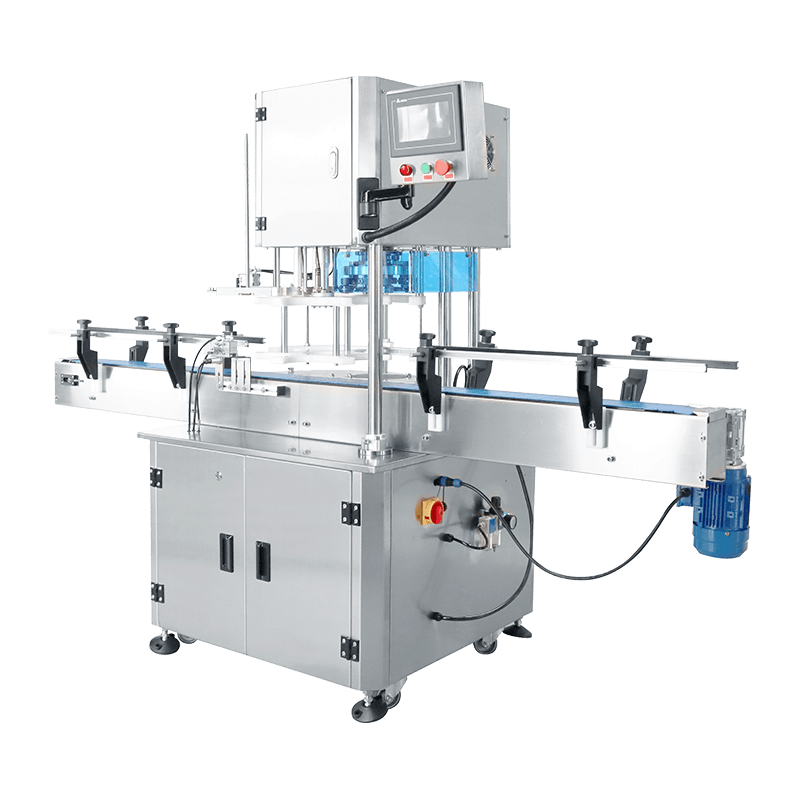In the dynamic world of manufacturing, the need for streamlined processes and precision is paramount. One integral aspect of the packaging industry is the capping of tin cans, ensuring product safety, freshness, and longevity. To excel in this field, a tin can capping machine emerges as a key player, revolutionizing the way manufacturers seal their products.
The Role of Tin Can Capping Machines
In the fast-paced packaging industry, where consumer preferences and demands change swiftly, maintaining consistency and product integrity is crucial. This is where tin can capping machines come into play. These machines have revolutionized the packaging process by automating the capping of tin cans with precision and efficiency.
Tin can capping machines function through a series of meticulously designed steps that ensure precise and consistent cap placement. These steps include cap sorting, cap placement, cap sealing, and quality control checks. The automated nature of these machines reduces human error and enhances overall efficiency.
Types of Tin Can Capping Machines
Snap Cappers
Snap cappers are designed to quickly and securely snap caps onto tin cans. They are ideal for products that require airtight sealing, preventing contamination and preserving freshness. Snap cappers are widely used in the food industry, especially for products like canned vegetables, sauces, and soups.
Chuck Cappers
Chuck cappers utilize rotating chucks to screw caps onto tin cans. This method ensures a tight seal, making chuck cappers suitable for products that require a secure closure, such as chemicals and industrial materials.
Spindle Cappers
Spindle cappers employ rotating spindles to twist caps onto tin cans. This mechanism is particularly effective for high-speed production lines, where efficiency is paramount. Spindle cappers find applications in various industries, including pharmaceuticals and cosmetics.
Rotary Cappers
Rotary cappers stand out due to their versatility. They can handle a wide range of cap sizes and types, making them a valuable asset for manufacturers dealing with multiple product lines. Rotary cappers are often used in the beverage industry for sealing drinks of different sizes and materials.
Benefits of Utilizing Tin Can Capping Machines
Enhanced Efficiency
Manual capping can be time-consuming and prone to errors. Tin can capping machines dramatically increase production speed, allowing manufacturers to meet high demand without compromising on quality.
Precise Capping
Consistency is key in the packaging industry. Tin can capping machines ensure uniform cap placement, minimizing the risk of leaks, spoilage, and contamination.
Versatility in Capping Options
Different products may require different types of caps. Tin can capping machines offer versatility, accommodating various cap sizes, materials, and closure mechanisms.
Maintenance and Durability
Modern tin can capping machines are built to last. Regular maintenance routines keep them operating smoothly, minimizing downtime and production interruptions.
Integration into Packaging Lines
Tin can capping machines seamlessly integrate into existing packaging lines, complementing other equipment like filling machines and labelers. This cohesive integration optimizes overall production efficiency.
Choosing the Right Tin Can Capping Machine
Production Rate: Consider your production volume. Choose a machine that aligns with your required output to prevent bottlenecks or underutilization.
Cap Types and Sizes: Different products necessitate different cap types and sizes. Ensure the chosen machine can handle the diversity of your product range.
Automation Level: Decide on the level of automation you require. From semi-automatic to fully automatic machines, your choice will impact labor costs and production speed.
Customization Options: Look for machines that can be customized to fit specific needs. Customization ensures that the machine aligns perfectly with your production requirements.
Conclusion
In the realm of modern packaging, where efficiency and quality are paramount, tin can capping machines show technological progress. With their diverse types, precise mechanisms, and host of benefits, they are undeniably indispensable for manufacturers aiming to elevate their packaging processes.



